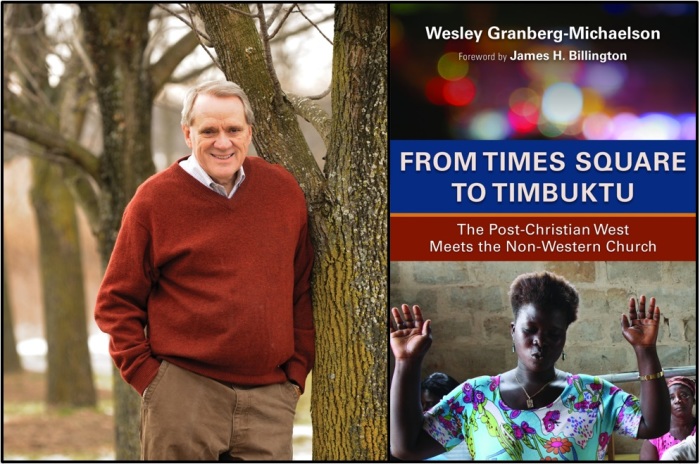Demographic Shift: Where Have All the Christians Gone?
New Book Discusses the Church's Western Decline and Southern Surge

Where have all the Christians gone? According to Pew Research, in 1900, eight out 10 Christians were living in Europe and North America. Today, the map demographics has been completely scrambled.
In Latin America alone, there are 517 million Christians. In Africa, 411 million. Asia tallies 351 million. Once a global powerhouse of Christianity, Europe is home to an ever-shrinking 553 million (expected to drop to 480 million by 2050,) while Northern America has 275 million.
In his new book, "From Times Square to Timbuktu: The Post-Christian West Meets the Non-Western Church," Wesley Granberg-Michaelson, the former General Secretary of the Reformed Church in America, focuses on making sense of the massive demographic shift and explores the consequences and responsibilities the Church must now face.
For Granberg-Michaelson, one of those responsibilities is unity. With over 2.18 billion Christians and seemingly ever growing 44,886 denominations globally, the author empathizes that work of bringing the Body of Christ together is difficult.
Yet, "the Biblical call to unity is pervasive and compelling," Granberg-Michaelson told The Christian Post.
"The Biblical passage calling Christians to unity isn't contained in a proof text here or there, but resonant throughout the Bible's message."
One of the institutional impediments that would-be church unifiers have encountered is the rise of independent or non-denominational congregations.
"One of the weaknesses of traditional, ecumenical instruments and organizations is that they just work with denominations," said Grandberg-Michaelson. "Some of the newer models…are really trying to figure out how do we draw independent churches, especially like the growth of mega-churches around the world. How can we draw them into more of an intentional fellowship?"
Granberg-Michaelson said that unity should not only be upheld as a value from high-level councils and institutions, but also should be hailed by the local church.
"The bottom line is that when you read the Bible, if you describe a congregation like the one I grew up in, an independent Bible-believing church, well that's an oxymoron," said Grandberg-Michaelson. "You can't be a Bible-believing church and be independent of all other churches and Christians. That's just not in the Bible. Our connections to one another are a gift and an obligation."
Grandberg-Michaelson said that one of the impacts of Christianity's spread in the "Global South" has been the increased interaction that these individuals are having with American Christians, much of this exchange enabled through immigration.
The author, who hails from Grand Rapids, Mich., said that a recent Sunday school assignment revealed the presence of 22 immigrant congregations in the city. Most recently, he learned of an Ethiopian congregation in the city from his cab driver.
[He told me] 'We have an Ethiopian Orthodox Church on 28th Street in Grand Rapids," recounted Grandberg-Michaelson. "I said, 'How do you do your ministry?' He said 'We have a priest from Ethiopia… we support him so he can pray every day and in fact today is my day to bring him his three meals.'"
"This is in Grand Rapids!" Grandberg-Michaelson added.
He said that the emergence of these congregations could be a significant asset for American-born Christians.
"The center of the Christian world has shifted and there are new voices. I'd like to think that those who have come for one reason or another from other countries into our midst, I'd like to think of them as God's missionaries," said Grandberg-Michaelson.
"There's one point in the book where I actually quote my friend [Emory University, Associate Professor of World Christianity,] Jehu Hanciles: 'Every Christian migrant is a potential Christian missionary,'" said Grandberg-Michaelson. "I think there is a whole new wave of Christianity that is being raised up around the world."
He challenges the "self-absorbed" American church to make a concerted effort to observe and celebrate Christianity's global growth.
"The prospects of Christianity around the world actually look pretty good. The faith is growing, it's vibrant, it's actually pretty exciting," he said. "The questions is whether the established churches of the United States and of Europe are going to pay any attention and be a part of it."




























